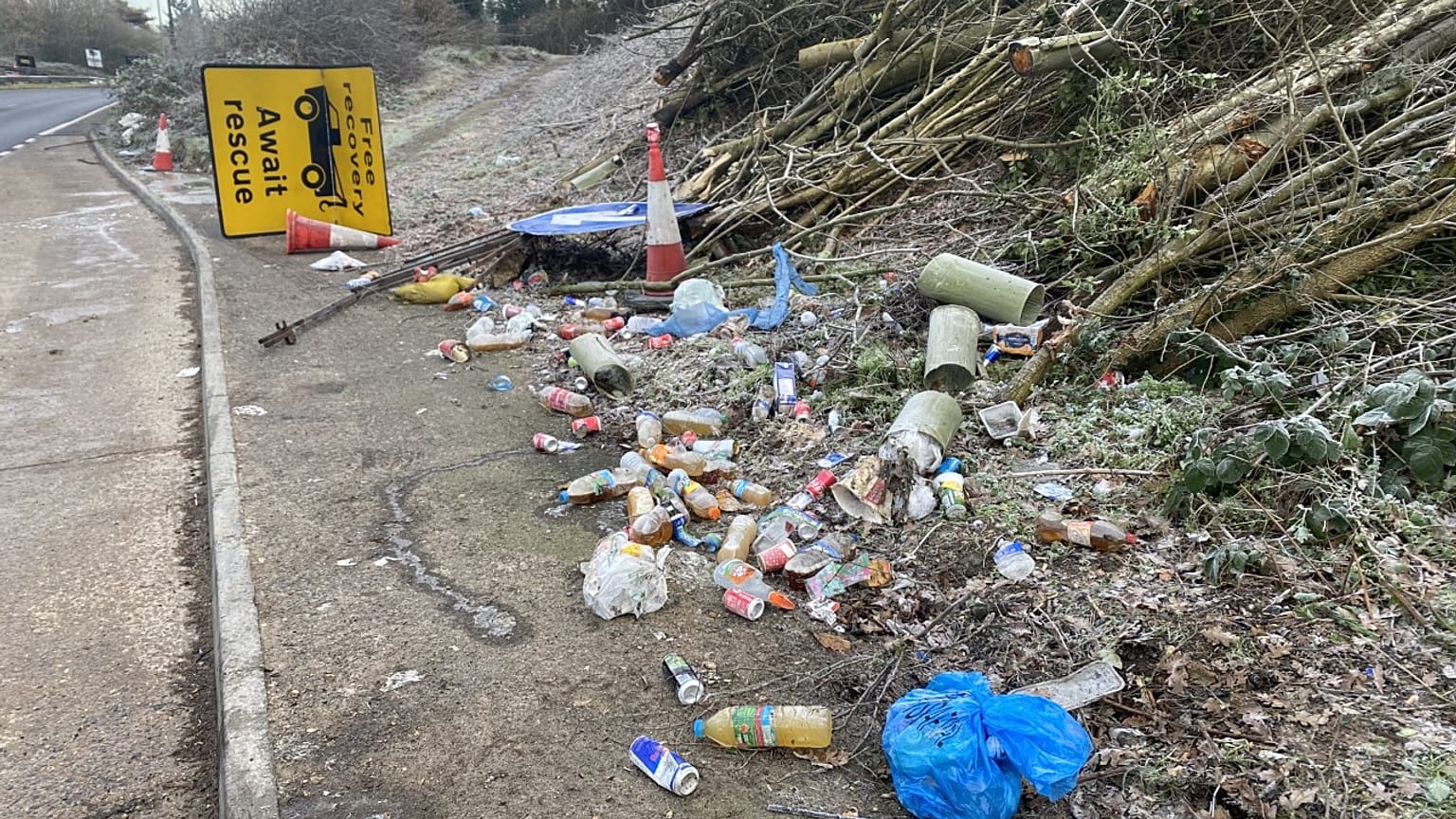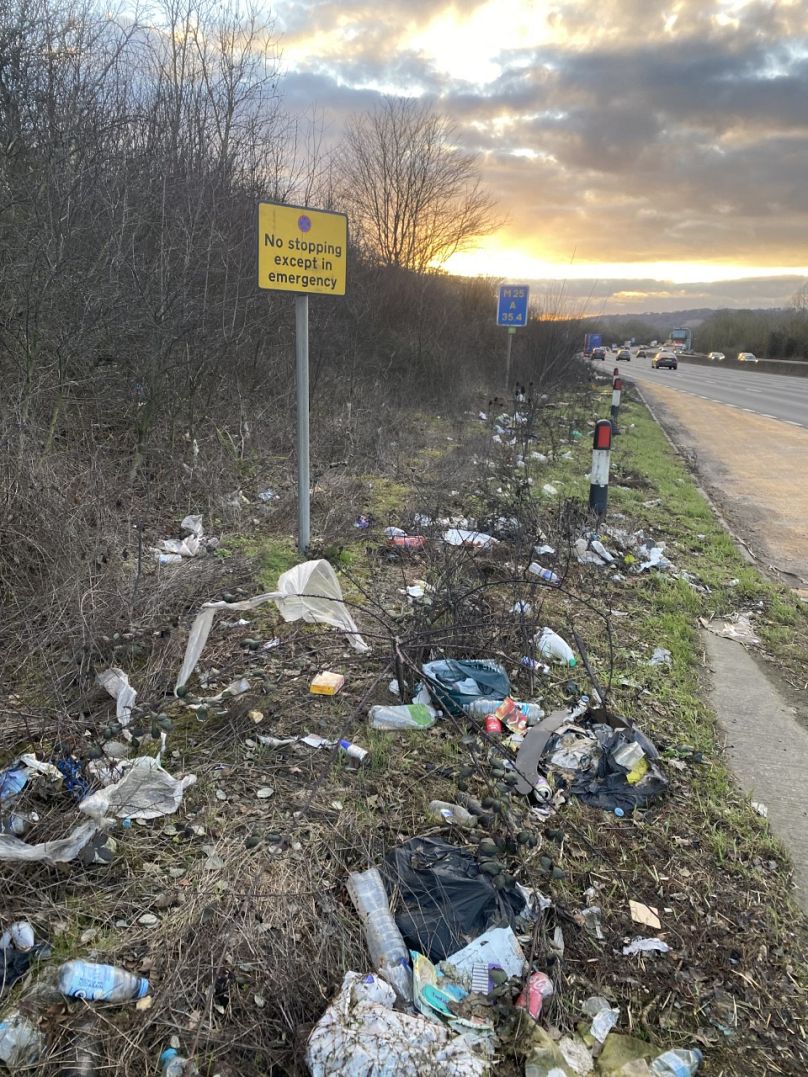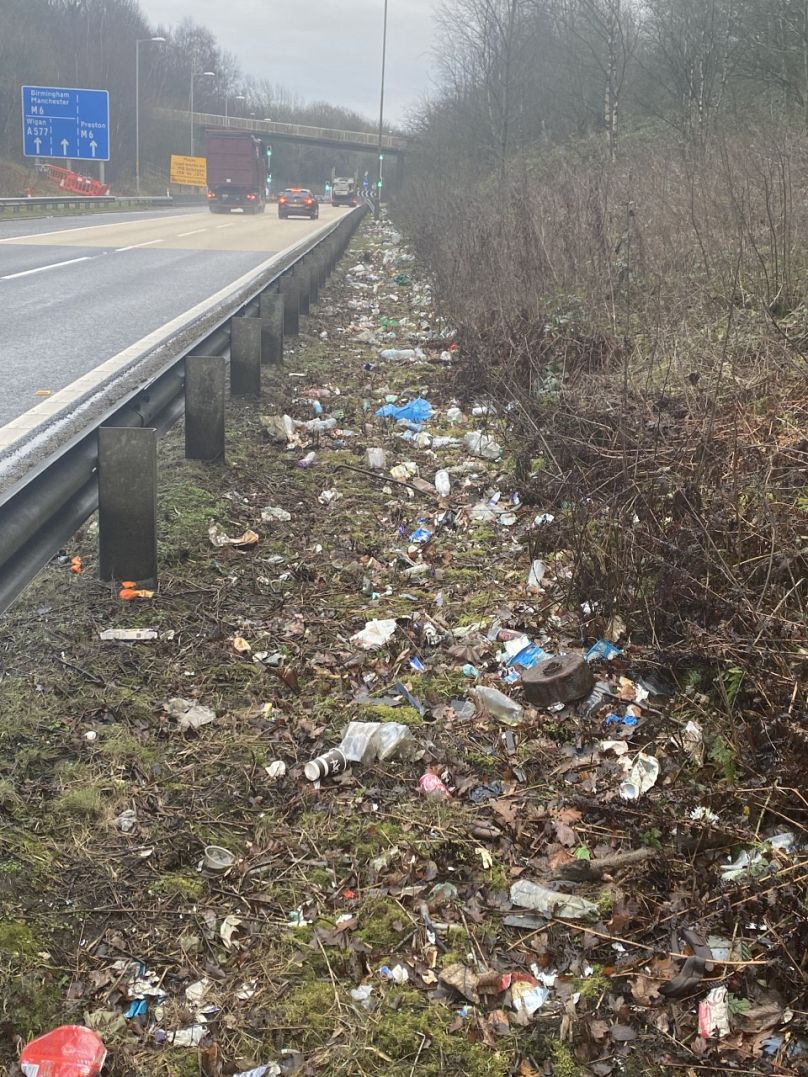Campaigners say the UK's rubbish "epidemic" is symptomatic of a "country in decline".
“The situation is dire,” said John Read of Clean Up Britain. “We have a serious problem with litter in the UK. I’d go so far as to say it's an epidemic.”
Drive along Britain’s roads recently and you’ll probably have noticed something: Litter. And lots of it.
Cigarette butts, beer bottles, cans, fast food wrappers, bin bags, plastic sheeting and white goods -- to name just a few -- are strewn in verges and laybys up and down the country.
“Britain is a naturally beautiful country, but right now it looks like a landfill,” said Read, who has campaigned on the issue for more than 12 years. “It's shameful for international visitors to come here and see how filthy our country is.”
“The rubbish is a terrible statement about a country in decline,” he added.
In 2015, a Parliamentary Select Committee compared England with countries in Europe, Japan and North America, concluding it was arguably the most littered nation in the West.
Not only an eye sore in Britain's picturesque countryside, roadside litter also has a devastating environmental impact.
Toxins from the waste leach into the soil and waterways, while the RSPCA – an animal protection charity – says it receives 10 calls a day about animals affected by litter.
Responsibility for Britain’s unsightly roadsides lies with local authorities, who typically own verges and lay-bys of minor roads, while National Highways is obligated to collect litter from England's motorways and major roads.
Read claimed the extent of the problem meant they were “breaking the law every day”, while simultaneously allowing offenders to get away scot-free by not enforcing fines on offenders.
Under UK law, landowners and occupiers have a duty to keep land clear of litter and refuse for which they are responsible.
Yet, Read pointed out that “huge” budget cuts in recent years have been “instrumental” in causing the problem, though added this was only part of the story.
According to the Institute of Fiscal Studies, local councils in England have seen an average cut to their budgets of almost 26 per cent since 2010.
Meanwhile, the Insitute for Government found last year the ruling Conservative party had “hollowed out” local government services, including refuse collection.
‘Antisocial, selfish, ignorant behaviour’
However, Read was sceptical of what he called “easy excuses”, calling it a “typical British attitude” to blame someone else.
“A significant number of Britons are selfish, lazy and ignorant,” he said. “Maybe 60% of what we see has been thrown out by irresponsible, anti-social idiots – of which Britain has got many.”
The causes of roadside litter are varied.
Alongside deliberate action, much waste blows off the back of trucks or lorries. Plus the endemic use of single-use plastics and excess packaging also plays a part in the problem.
“If we’re ever to have a chance of returning England to a clean and pleasant land. We have to start off with a mass cleanup,” said Read. “Britain’s problem is that has become a social norm that the country looks like a cesspit.”
In the meantime, ordinary people are left picking up the pieces – quite literally.
Volunteers organise clean-ups of their local area – often on the weekends – while groups such as Read's raise awareness of the problem and put pressure on the authorities to act.
This week, Clean Up Britain launched a 10-point plan to clean up Britain’s roads, which advocated for several measures, including £1,000 (€1,135) fines for offenders, and printing vehicle registration plates on fast foot packaging as a way to shame culprits.
'Environmental anarchy'
According to Read, such volunteer action was needed amid an epidemic of inaction – by both local authorities and central government.
“I'm not surprised nothing happens,” said Read. “They [officials] are lacking inspiration. They're lacking vision, they're lacking energy, and lacking the ability to see the bigger picture as to what needs to be done.”
A Department for Environment, Food & Rural Affairs spokesperson said: "Littering blights our communities, spoils our countryside, harms our wildlife, and taxpayers’ money is wasted cleaning it up."
“We are committed to supporting local councils to tackle littering – that is why we have awarded nearly £1m to help councils purchase new bins, provided powers to fines to those caught littering and shared guidance on effective enforcement.”
A litter strategy in England was first published by the government in 2017. It set out 36 "commitments and actions... "to clean up the country and the country and deliver a substantial reduction in litter and littering within a generation."
"There's absolutely zero leadership on this issue from the government. [Secretary of State for Environment, Food and Rural Affairs] Thérèse Coffey has done nothing,” said Read.
"There’s an arrogant silence and a failure to engage with anyone that doesn't suit their echo chamber”.
The government and water companies have come under fire for widespread endemic raw sewage leaks in Britain, which are threatening human health, marine life and fishing.
“It's a state of anarchy that's a searing indictment on the government that bangs on about... absolute rubbish," Read told Euronews. “It's all talk no action, which, of course, is what most politicians are about."
"They’ve completely failed."
In a statement sent to Euronews, National Highways Head of Customer Journeys, Freda Rashdi said: "Littering is a social problem across the country and we’re working hard to tackle it on our roads. We regularly carry out litter-picking activities across our roads and are actively exploring other initiatives to address this problem."
"It includes using CCTV in A-road laybys to gather evidence to provide to local authorities, who can carry out enforcement, as well as installing larger bins."
“But if people don’t drop litter in the first place it wouldn’t need to be picked up – so we urge road users to take their litter home instead of throwing it out of their windows,” she added.

















